Introduction
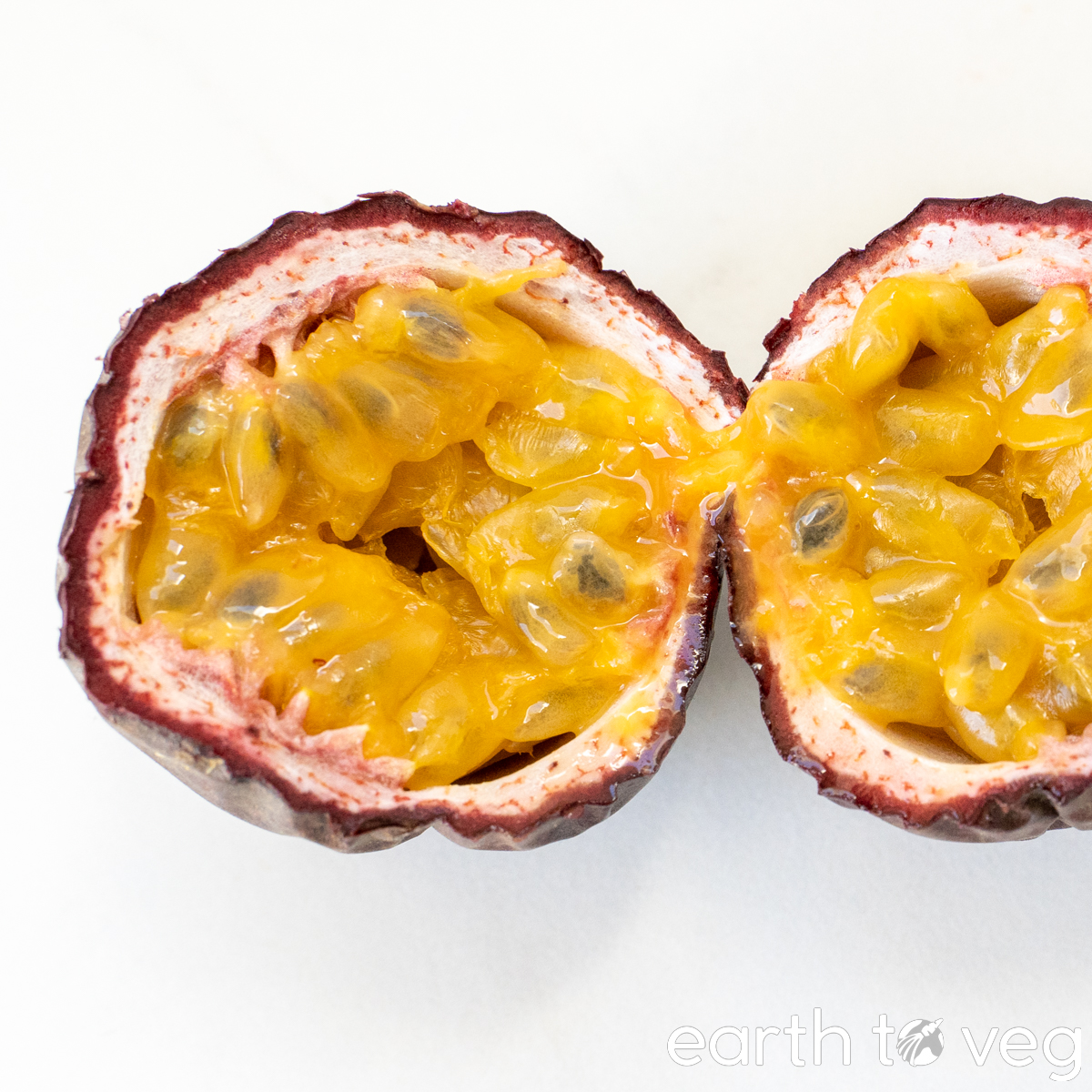
In the world of tropical fruits, two contenders stand out: granadilla and passion fruit. These exotic delights not only add a burst of tanginess to various dishes and beverages but also offer a range of health benefits. While sharing some similarities, these fruits have distinct characteristics that set them apart. In this face-off, we will explore the appearance, taste, and texture of granadilla and passion fruit, along with their nutritional values and popular uses. Get ready for a flavorful showdown as we delve into the world of tropical tanginess!
Brief Overview Of Granadilla And Passion Fruit
Granadilla and passion fruit are both tropical fruits that are known for their tangy and refreshing flavors. Granadilla, also known as the purple passion fruit, has a smooth purple or yellow outer shell with a jelly-like pulp filled with edible seeds. It has a sweet and tangy taste, making it a popular ingredient in smoothies, desserts, and sauces. Passion fruit, on the other hand, has a wrinkled round or oval-shaped outer shell with a bright orange or yellow pulp. It has a sour and tropical flavor, which lends itself well to cocktails, desserts, and salads. Both fruits are packed with essential vitamins and minerals, making them a nutritious addition to any diet.
Nutritional Benefits And Popular Uses Of Both Fruits
Both granadilla and passion fruit are packed with essential vitamins and minerals, making them a nutritious addition to any diet. Granadilla is known for its high vitamin C content, which boosts immunity and aids in collagen production. It is also rich in fiber, promoting healthy digestion. Passion fruit, on the other hand, is a great source of vitamin A, which supports eye health and immune function. Both fruits are versatile in their uses. Granadilla is commonly used in smoothies, desserts, and sauces, while passion fruit adds a tropical twist to cocktails, desserts, and salads.
Granadilla: The Exotic Tropical Favorite

Granadilla, with its enticing name and vibrant appearance, is truly an exotic tropical favorite. This unique fruit, also known as the “sweet passion fruit”, captivates the taste buds with its sweet and tangy flavor. Its enticing aroma and distinctive taste make it a popular choice among fruit enthusiasts seeking a tropical escape. The granadilla’s soft and juicy flesh, filled with seeds surrounded by a gel-like pulp, adds a delightful textural element to any dish or beverage. Whether enjoyed on its own, in smoothies, or as a topping for desserts, granadilla brings a burst of tropical tanginess that is simply irresistible.
Granadilla Appearance, Taste, And Texture
Granadilla is a stunning tropical fruit that captivates with its vibrant appearance. The fruit is round, resembling a small orange or yellow melon. Its outer skin is smooth and glossy, with a thin, delicate texture. When cracked open, granadilla reveals a treasure trove of soft, jelly-like pulp filled with numerous black seeds. The taste of granadilla is a delightful combination of sweetness and tanginess. It leans more towards the sweet side, with a subtle tangy undertone that adds a refreshing twist. The soft and juicy texture of the pulp, combined with the crunchiness of the seeds, offers a unique and enjoyable eating experience. Granadilla’s exotic appearance, sweet-tangy flavor, and pleasing texture make it a favorite choice for tropical fruit enthusiasts.
Health Benefits Of Granadilla Consumption
Consuming granadilla provides numerous health benefits. Firstly, it is rich in dietary fiber, which promotes healthy digestion and prevents constipation. The fruit is also a great source of vitamin C, which boosts the immune system, promotes collagen synthesis, and protects against oxidative stress. Granadilla contains antioxidants that fight against inflammation and reduce the risk of chronic diseases. Additionally, it is known to have calming properties and can help alleviate anxiety and stress. Incorporating granadilla into your diet is a flavorful and nutritious way to support overall health and well-being.
Passion Fruit: The Versatile Tropical Delight
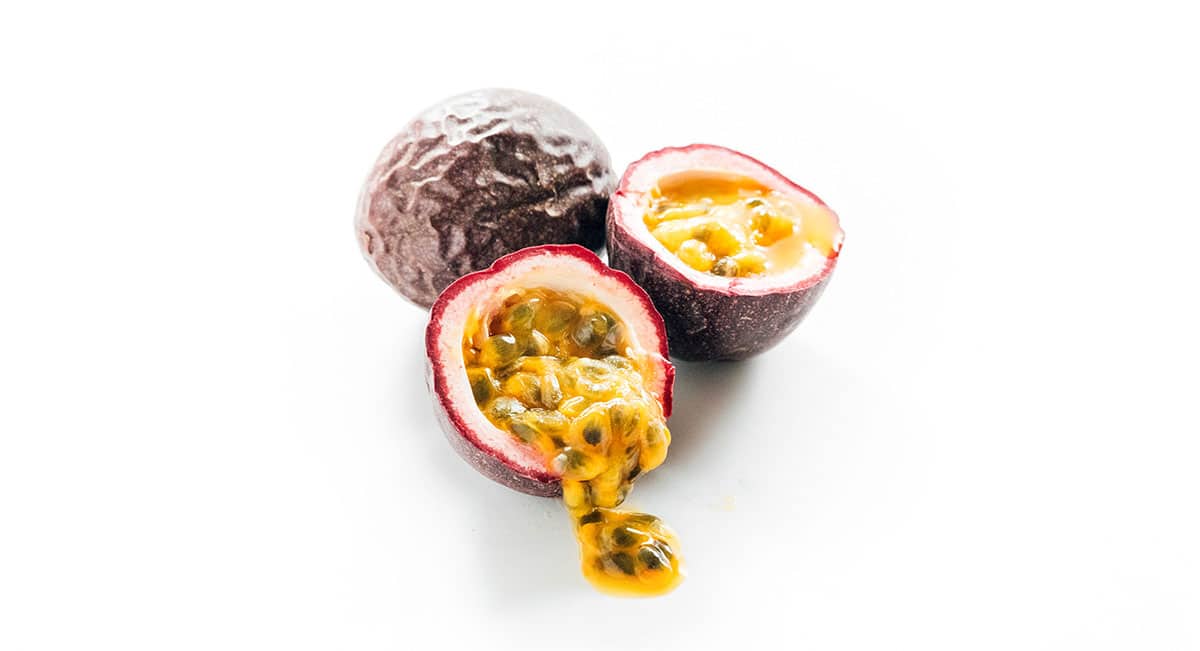
Passion fruit is a true tropical delight, known for its versatility and unique flavor. This small, round fruit features a vibrant purple or yellow skin with a rich, fragrant aroma. Once cut open, the fruit reveals a jelly-like pulp filled with small black seeds.
The taste of passion fruit is delightfully tangy, with a perfect balance of sweetness and acidity. Its refreshing flavor adds a tropical twist to various dishes and beverages. Passion fruit is commonly used in cocktails, where it lends a tropical punch and a vibrant color. It also adds a burst of flavor to desserts like cakes, tarts, and ice creams.
Besides its delicious taste, passion fruit is packed with nutritional benefits. It is high in vitamin A, which supports healthy vision and boosts the immune system. The fruit is also a great source of dietary fiber, promoting healthy digestion and preventing constipation. Additionally, passion fruit is rich in antioxidants, which help protect the body against harmful free radicals and inflammation.
Not only is passion fruit a culinary delight, but it also offers numerous health benefits. So, whether you’re enjoying it in a refreshing drink or savoring it in a decadent dessert, passion fruit is sure to bring a tropical delight to your taste buds and nourish your body at the same time.
Passion Fruit Appearance, Taste, And Texture
Passion fruit, with its vibrant purple or yellow skin, is a tropical delight that catches the eye. Once cut open, the fruit reveals a jelly-like pulp filled with small black seeds. Its taste is a delightful combination of tanginess, sweetness, and a hint of sourness. The unique flavor profile of passion fruit adds an exotic twist to various dishes and beverages. In terms of texture, the pulp is soft and velvety, creating a pleasant mouthfeel. Its distinct appearance, tantalizing taste, and smooth texture make passion fruit a popular choice for both culinary and visual enjoyment.
Health Benefits Of Passion Fruit Consumption
Passion fruit is not only delicious but also packed with a range of health benefits. Consuming passion fruit can support a healthy immune system due to its high vitamin C content. It is also rich in antioxidants, which help protect the body against damage caused by free radicals. The fiber in passion fruit aids in digestion and promotes regular bowel movements. Additionally, passion fruit has a low glycemic index, making it a suitable choice for individuals with diabetes or those looking to manage their blood sugar levels. Incorporating passion fruit into your diet can contribute to overall health and well-being.
Granadilla Vs Passion Fruit: Flavor Showdown
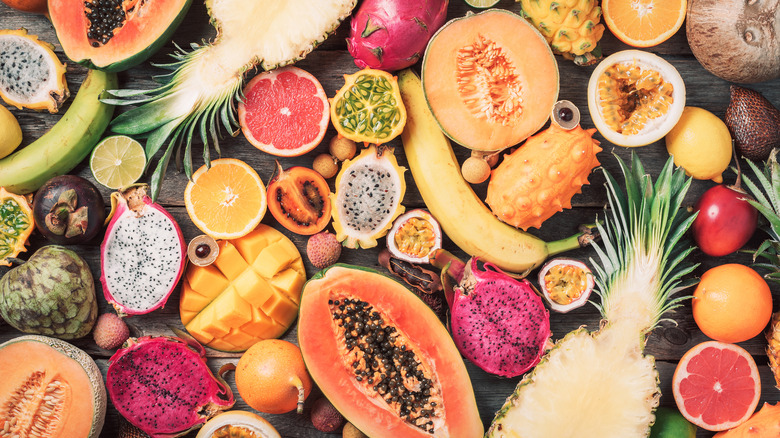
When it comes to flavor, granadilla and passion fruit offer a delightful tanginess that sets them apart from other fruits. Granadilla boasts a sweet and tangy taste, with a hint of tropical sweetness that will transport you to a paradise island. On the other hand, passion fruit brings a bold and sour punch that exhilarates the taste buds. Its unique flavor adds a refreshing and tangy twist to any dish or drink. Whether you prefer the sweet tang of granadilla or the bold sourness of passion fruit, both fruits promise a burst of tropical flavor that will leave you craving for more.
Comparison Of Flavor Profiles And Tanginess
Granadilla and passion fruit offer distinct flavor profiles that set them apart. Granadilla has a sweet and tangy taste with a hint of tropical sweetness, transporting you to an island paradise. On the other hand, passion fruit brings a bold and sour punch that exhilarates the taste buds. Its unique flavor adds a refreshing and tangy twist to any dish or drink. Whether you prefer the sweet tang of granadilla or the bold sourness of passion fruit, both fruits promise a burst of tropical flavor that will leave you craving for more.
Cooking And Baking Uses Of Granadilla And Passion Fruit
Both granadilla and passion fruit offer a burst of tropical flavor that can elevate various cooking and baking creations. Granadilla is commonly used in smoothies, desserts, and sauces, adding a sweet and tangy twist to recipes. It can be used as a topping for cakes, blended into ice cream, or turned into a delicious granadilla mousse. Passion fruit, on the other hand, is often utilized in cocktails, desserts, and salads. Its bold and sour taste pairs well with creamy custards, tropical tarts, and tangy sorbets. Whether you’re baking a cake or whipping up a refreshing cocktail, both granadilla and passion fruit can bring a tropical touch to your culinary adventures.
Nutritional Value And Health Benefits
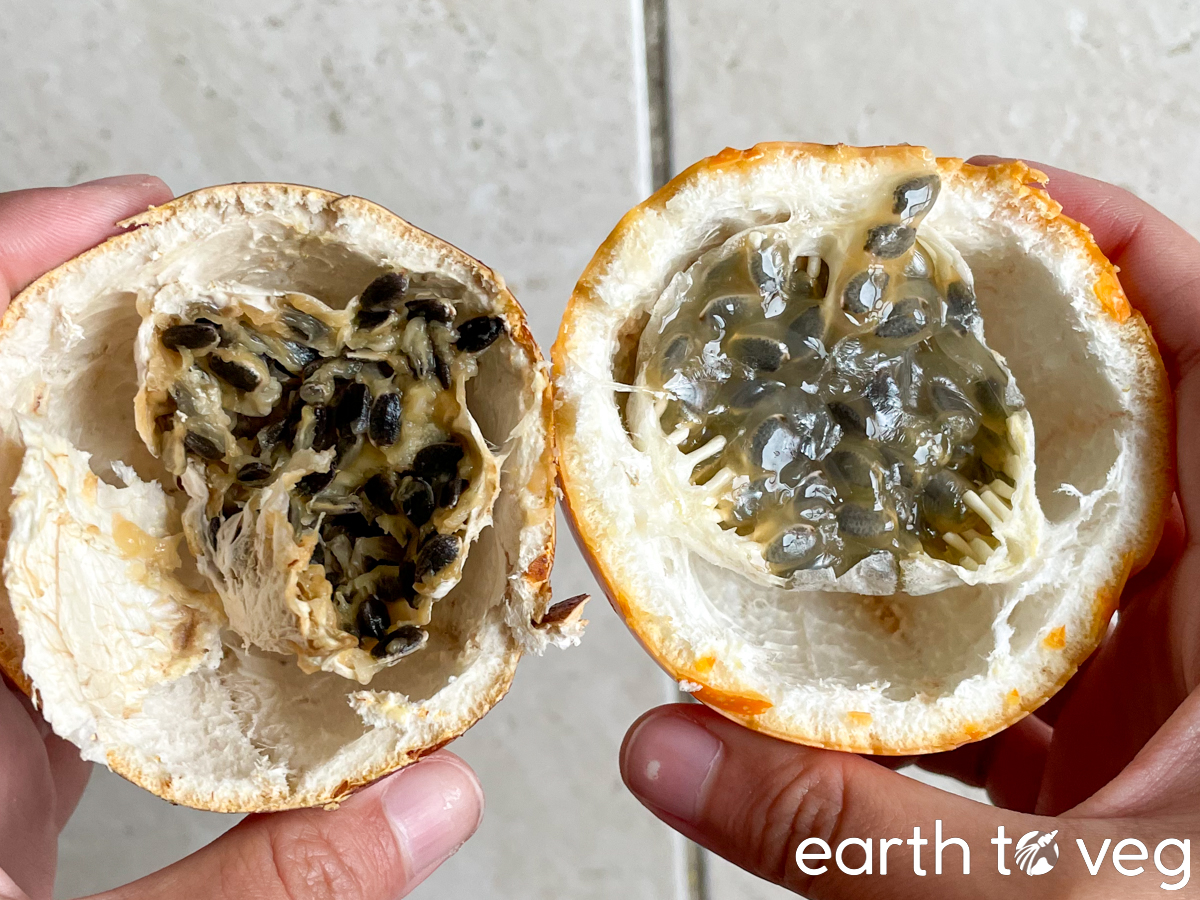
Both granadilla and passion fruit offer a plethora of nutritional benefits that contribute to overall health and well-being. Both fruits are low in calories and high in dietary fiber, making them great options for weight management and digestive health. Granadilla is a rich source of vitamin C, which boosts the immune system and promotes collagen production for healthy skin. Passion fruit, on the other hand, contains high levels of antioxidants, such as vitamin A and flavonoids, which help protect against free radicals and reduce inflammation. Incorporating both fruits into your diet can provide a range of vitamins, minerals, and antioxidants that support optimal health.
Nutrient Comparison Between Granadilla And Passion Fruit
Granadilla and passion fruit offer a range of essential nutrients that contribute to a healthy diet. In terms of vitamin content, granadilla is a powerhouse of vitamin C, providing a higher amount compared to passion fruit. Vitamin C plays a crucial role in boosting the immune system and promoting collagen production for healthy skin. On the other hand, passion fruit is packed with vitamin A, which supports vision health and boosts the immune system. Both fruits are low in calories and high in dietary fiber, making them great options for weight management and digestive health. Incorporating both granadilla and passion fruit into your diet can provide a variety of essential vitamins and minerals for overall well-being.
Impact On Skin Health, Digestion, And Overall Well-being
Both granadilla and passion fruit have a positive impact on various aspects of health and well-being. The high vitamin C content in granadilla helps promote healthy skin by boosting collagen production and protecting against free radical damage. Additionally, the dietary fiber in both fruits supports good digestion by promoting regular bowel movements and preventing constipation. Overall, incorporating these tropical fruits into your diet can contribute to improved skin health, better digestion, and enhanced overall well-being. So, whether you choose granadilla or passion fruit, both can help you achieve a healthier and happier lifestyle.
Conclusion
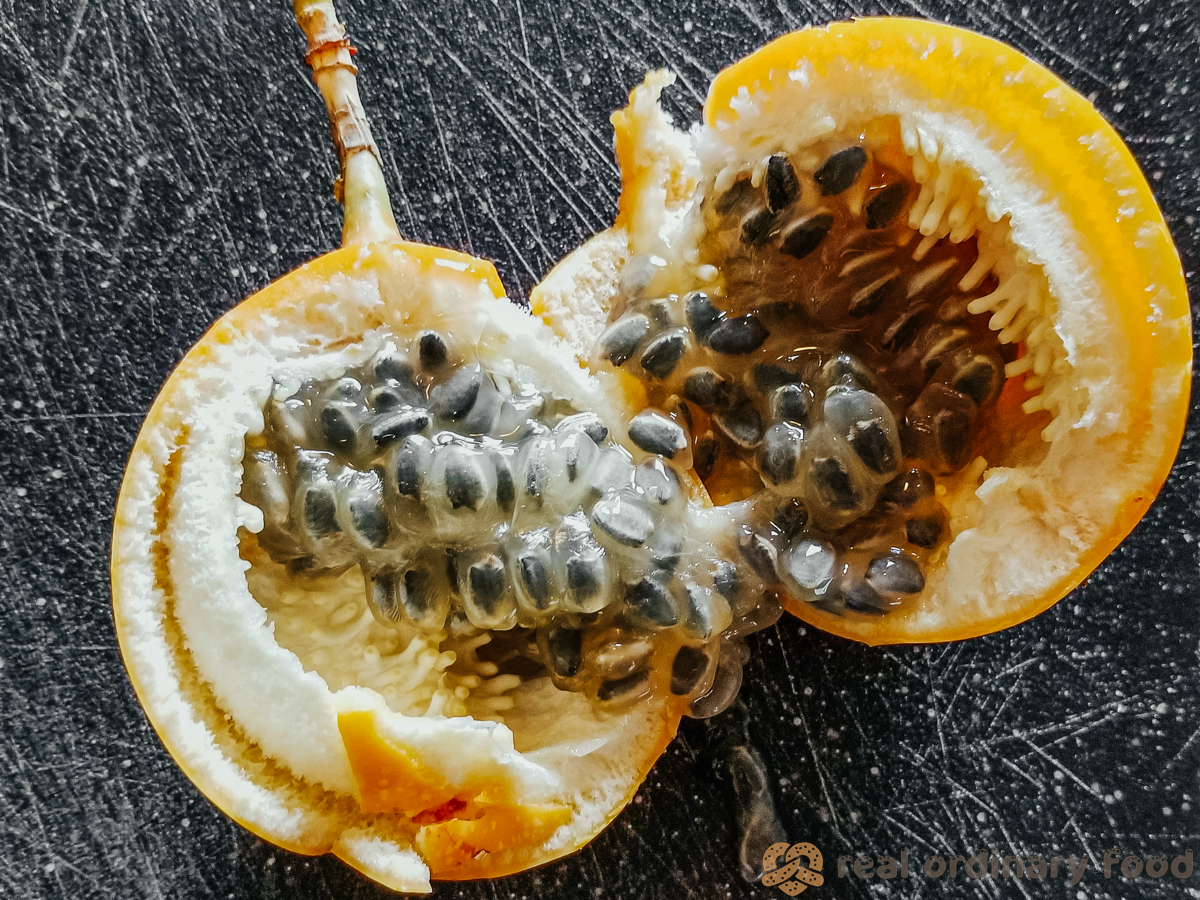
In conclusion, the granadilla vs passion fruit face-off highlights the unique characteristics and benefits of both tropical fruits. Granadilla offers a sweet and tangy flavor profile, making it a favorite in smoothies and desserts. On the other hand, passion fruit adds a tangier and slightly sour taste to cocktails, desserts, and salads. Both fruits are packed with essential nutrients that contribute to skin health, digestion, and overall well-being. Incorporating either granadilla or passion fruit into a balanced diet can enhance your tropical fruit experience and promote a healthier lifestyle. So, why not enjoy the tropical tanginess of these fruits and reap their numerous benefits?
Final Thoughts On The Granadilla Vs Passion Fruit Debate
In the battle of granadilla vs passion fruit, it ultimately comes down to personal preference and taste. While both fruits offer tropical tanginess, they have distinct flavor profiles that cater to different palates. Granadilla delights with its sweet and tangy taste, perfect for those who prefer a milder tanginess. Passion fruit, on the other hand, brings a tangier and slightly sour flavor that adds a unique twist to various dishes and beverages. Whether you choose granadilla or passion fruit, incorporating these tropical fruits into your diet will surely elevate your culinary experience and provide a burst of tropical goodness.
Ways To Incorporate Both Fruits Into A Balanced Diet
Both granadilla and passion fruit are versatile fruits that can be easily incorporated into a balanced diet. Here are some creative ways to enjoy these tropical delights:
- Smoothies: Blend granadilla or passion fruit pulp with your favorite fruits and a liquid base like almond milk or yogurt for a refreshing and nutrient-packed smoothie.
- Salads: Add slices or pulp of granadilla or passion fruit to your salads for a burst of tanginess and tropical flavor. They pair well with leafy greens, avocado, and citrus-based dressings.
- Desserts: Use granadilla or passion fruit as a topping for desserts like cakes, tarts, or puddings. The tangy flavor adds a delicious twist to sweet treats.
- Sauces: Create a tangy sauce by blending granadilla or passion fruit pulp with a little honey or sugar. Drizzle it over grilled fish or chicken for a tropical and flavorful touch.
- Cocktails: Add granadilla or passion fruit juice or pulp to cocktails for a tropical and tangy twist. They work well in margaritas, mojitos, or even a simple fruit punch.
By incorporating these fruits into your meals and snacks, you can enjoy their unique flavors while reaping the health benefits they offer. Whether it’s in smoothies, salads, desserts, or sauces, granadilla and passion fruit add a tropical tanginess that will enhance any balanced diet.
FAQ About Granadilla Vs Passion Fruit: Tropical Tanginess Face-off
Q: What is the difference between Granadilla and Passion Fruit?
A: Granadilla and passion fruit are different species of the same fruit. Granadilla has a more pronounced tanginess compared to passion fruit, which is slightly sweeter.
Q: Can Granadilla and Passion Fruit be used interchangeably in recipes?
A: While both fruits have a similar flavor profile, they may not always be interchangeable in recipes due to the slight differences in taste and texture.
Q: Which fruit is more commonly found in tropical regions?
A: Passion fruit is more widely available and commonly found in tropical regions around the world compared to Granadilla.
Q: Are Granadilla and Passion Fruit high in nutritional value?
A: Both Granadilla and Passion Fruit are rich in vitamins and antioxidants, making them healthy additions to your diet.
Q: How can one differentiate between a Granadilla and a Passion Fruit?
A: Granadilla is usually smaller in size and has orange-yellow skin when ripe, while Passion Fruit is larger and has a purple or yellow exterior when mature.
Q: Can the seeds of Granadilla and Passion Fruit be eaten?
A: Yes, the seeds of both fruits are edible and add a crunchy texture to dishes or can be used for planting to grow your own fruit-bearing plants.

Duke City Kitchen, known for its fresh, simple, and delicious cuisine, has a rich history deeply rooted in the heart of the local food scene. Since its inception, Duke City Kitchen has been dedicated to providing an exceptional dining experience that celebrates the region’s flavors. Founded by a passionate group of food enthusiasts, Duke City Kitchen opened its doors with the vision of offering a welcoming space where people could gather to enjoy thoughtfully prepared meals made from the finest, locally sourced ingredients. This commitment to quality and community has been a driving force behind Duke City Kitchen’s success.